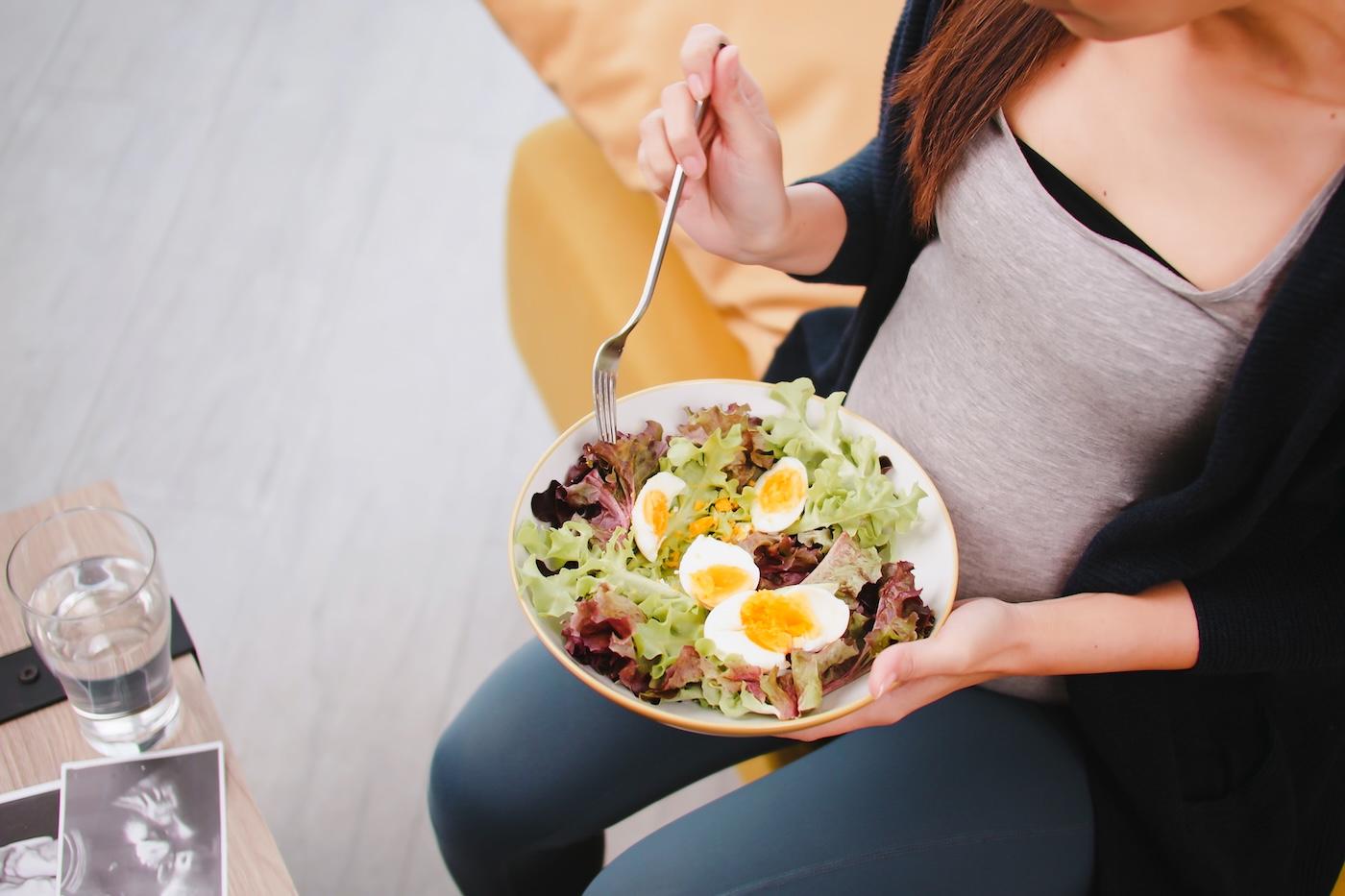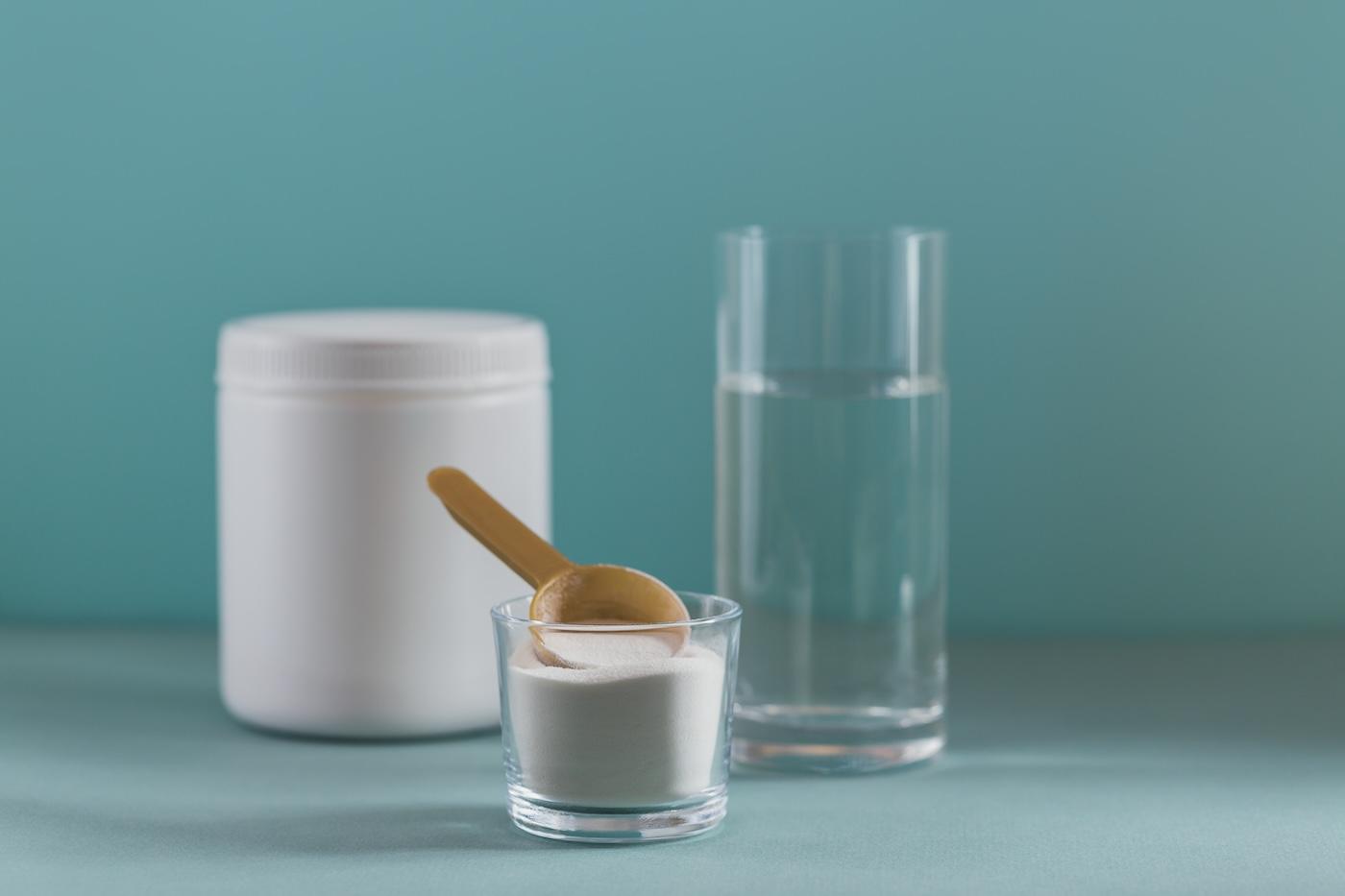PREGNANCY
Why Food Poisoning During Pregnancy Is Such Risky Business
Getting a foodborne illness while expecting is more than an inconvenience—it can be dangerous.

Written by
Happiest Baby Staff

While it can be frustrating to learn that so many of your favorite foods are suddenly “off-limits” during pregnancy, tabling these eats until your baby arrives is important. That’s because pregnancy alters your immune system, making it much harder for you to fight off certain harmful microorganisms, which puts you at a particularly high risk for foodborne illness. For example, pregnant individuals are 10 times more likely to get listeria-based food poisoning than non-pregnant folks. Sure, if food poisoning during pregnancy simply meant you might have to deal with a mild bout of diarrhea, it wouldn’t be so bad. But the truth is, food poisoning during pregnancy can be especially dangerous for you and your baby-to-be. Here’s what you need to know to keep yourself and your little one safe from food poisoning.
What is food poisoning during pregnancy?
Food poisoning during pregnancy (aka foodborne illness during pregnancy) is when you consume a food or beverage that contains harmful bacteria, parasites, or viruses—or chemical contaminants. Some of the most common microorganisms to cause pregnancy food poisoning are listeria, salmonella, and toxoplasma.
-
Listeria: Listeria causes a foodborne illness called listeriosis, which is one of the most serious types of food poisoning, according to the American College of Obstetricians and Gynecologists (ACOG). This harmful bacterium can be found in meat, poultry, seafood, unpasteurized dairy, and produce harvested from contaminated soil. - Salmonella: Food poisoning caused by salmonella is called salmonellosis. Salmonella bacteria can be found in raw or undercooked eggs, poultry, meat, or fish as well as unpasteurized dairy and juice, plus fruits and veggies grown in tainted soil.
- Toxoplasma: Toxoplasma can be found in raw and undercooked meat, unwashed produce, and contaminated water. This parasite can also linger in dirty cat-litter boxes. About 85% of pregnant individuals in America are at risk of being infected with the parasite that causes toxoplasmosis—and half of these infections are acquired from food. Because of this, between 300 and 4,000 unborn babies contract toxoplasmosis in America each year.
Food Poisoning and Pregnancy: Foods to Avoid
There’s no need to totally empty your fridge, cancel your standing lunch order, or clean-sweep your pantry, but you will want to nix high-risk eats until Baby arrives. These foods are most likely to cause food poisoning in pregnancy:
-
Deli and luncheon meats (unless reheated until steaming hot) - Hot dogs
- Cold salads from delis and salad bars
- Soft cheeses, like feta, Brie, Camembert, Roquefort, queso blanco/fresco, Panela, Asadero
- Refrigerated pâté or meat spreads (canned meat spreads are okay)
- Refrigerated smoked seafood, called nova-style, lox, kippered, smoked, or jerky
- Unpasteurized dairy products and juices
- Raw and undercooked eggs, meat, poultry, seafood
- Unwashed fruits, vegetables, and sprouts
Food Poisoning Symptoms During Pregnancy
While food poisoning in pregnancy can often cause symptoms in 1 to 3 days, ickiness can strike as soon as 20 minutes after ingestion—or as long as 2 months later. And toxoplasmosis and listeriosis in particular can be fairly difficult to detect since some pregnant individuals don’t experience any symptoms. Unfortunately, even symptom-free parents-to-be can easily expose their unborn baby to these dangerous microorganisms.
Here are some signs that you’re dealing with food poisoning during pregnancy:
-
Nausea and/or vomiting - Belly pain and/or cramping
- Blood in your poop
- Dark or amber-colored pee
- Dehydration
- Fever
- Headache
- Chills
- Muscle pains
- Stiff neck (listeriosis and toxoplasmosis)
- Confusion (listeriosis)
- Loss of balance (listeriosis)
- Swollen glands (toxoplasmosis)
Morning Sickness vs. Food Poisoning When Pregnant
Since queasiness and pregnancy often go hand-in-hand, it’s not shocking that some parents-to-be confuse morning sickness with food poisoning in pregnancy. But there are some key differences to help you determine what exactly is making you feel crummy. For instance, where morning sickness is all about nausea, (possible) vomiting, and food aversions, food poisoning involves GI symptoms, like belly pain and diarrhea, as well. (Learn more about morning sickness.)
Will food poisoning in pregnancy affect my baby?
Because your baby-to-be’s immune system is not developed enough to fight off harmful foodborne illness, they are at an elevated risk for complications related to food poisoning. Foodborne illness during pregnancy has been shown to cause preterm labor, premature delivery, low birth weight, even miscarriage and stillbirth. In addition…
- Listeriosis: This can lead to a loss of appetite, fever, irritability, vomiting, and difficulty breathing in newborns. This type of food poisoning may cause life-threatening infections, including bacteremia (bacteria in the blood) and meningitis (brain and spinal cord swelling). Listeriosis late in pregnancy may lead to intellectual disability, paralysis, seizures, blindness, or impairments of the brain, heart, or kidney. In newborns. ACOG also warns that listeriosis can be fatal in newborns.
- Salmonella: Though rare, you can pass a salmonella infection to your baby-to-be. If this happens, your newborn may have a fever and diarrhea at birth—and/or develop meningitis or a blood infection called sepsis. If antibiotics aren’t offered promptly, meningitis may lead to long-term problems.
- Toxoplasmosis: While most infected babies don’t show any symptoms at birth, some newborns may have eye or brain damage and others develop blindness or mental disability later in life. As many as 80% of babies born with toxoplasmosis that was left untreated develop these issues by age 20.
Treatment for Food Poisoning During Pregnancy
Reach out to your healthcare provider immediately if you suspect you may have food poisoning—or if you’ve consumed a food or beverage that’s been flagged for contamination. (Keep tabs on food recalls.)
Listeriosis, salmonella, and toxoplasmosis are all detectable with blood or stool testing even if you don’t have any symptoms. But if you are experiencing persistent abdominal and diarrheal symptoms, it’s a good idea to request testing.
Ultimately, treatment depends on what the tests reveal and how sick you are. Some pregnant individuals may not need any treatment, while others may be given antibiotics to help keep themselves and their baby safe. Antibiotics may also be given to babies who are born with foodborne illness. Regardless, if you have food poisoning during pregnancy, drink lots of water to help prevent dehydration. Learn more about the importance of hydration during pregnancy.
Who’s at risk for food poisoning in pregnancy?
You may be at increased risk of getting food poisoning in pregnancy if you…
-
Take heartburn meds (reduced stomach acid) - Recently used antibiotics
- Have inflammatory bowel disease (IBD)
- Have a weakened immune system
- Are Hispanic—Hispanic parents-to-be are 24 times more likely than others to develop listeriosis, according to the Centers for Disease Control and Prevention (CDC). It’s thought that this is likely due to consuming unpasteurized traditional foods, like queso fresco, throughout pregnancy.
How to Prevent Food Poisoning During Pregnancy
Beyond avoiding risky foods, these tips can help keep foodborne illness at bay when you’re expecting—and beyond!
-
Read food labels. Be sure any dairy product and juice you consume have the words “pasteurized” or “made with pasteurized milk” on the label. That means “freshly squeezed” bottled juices are off limits. (Pasteurized foods have been heated to a safe temperature to destroy dangerous microorganisms.) - Only buy refrigerated And keep them in the fridge! (Use within 3 to 5 weeks of purchase.)
- Avoid some pre-cut fruits and veggies. Only buy pre-cut produce that’s refrigerated or surrounded by ice. Store in the fridge at home.
- Skip sprouts! Even rinsed or lightly cooked sprouts can contain bacteria.
- Check your refrigerator. Make sure the fridge is set at 40 degrees Fahrenheit or lower and the freezer is at 0 degrees Fahrenheit to ensure foods are cold enough to fend off bacteria growth.
- Follow the two-hour rule. Refrigerate or freeze perishables, prepared food, and leftovers within two hours of eating or preparing—or after one hour if the temperature is above 90 degrees Fahrenheit.
- Wash your hands. Scrub for at least 20 seconds before and after touching raw food—and after using the bathroom, changing diapers, or touching animals.
- Rinse your produce. Thoroughly rinse all fruits and veggies under running water before eating, peeling, cutting, or cooking. But never rinse raw meat or poultry!
- Mind your kitchen. Wash utensils, counters, and cutting boards with hot, soapy water after using them. Use a different cutting board for raw meat, poultry, and seafood (and keep raw animal products away from other eats). And don’t put cooked food on a plate that held raw food.
- Don’t thaw foods on the counter. Instead, defrost food in the refrigerator, microwave, or in cold water. (Cook immediately after a microwave or cold-water thaw.)
- Microwave right. Cover, stir, and rotate food in the microwave to ensure every little bit is cooked.
- Turn up the heat. Make sure all cooked meats reach 165 degrees Fahrenheit before serving to ensure its safety. Cooked seafood should reach 145 degrees Fahrenheit.
More on Pregnancy Nutrition:
- Straight Talk on Foods to Avoid in Pregnancy
- Pregnancy Aversions: Why Your Favorite Foods Make Your Tummy Turn
- Healthy Pregnancy Meal Plans and Recipes
- What to Eat When You’re Expecting Twins and Multiples
- What “Eating for Two” Really Means
***
- Food and Drug Administration (FDA): What Is Foodborne Illness? Food Safety for Moms to Be
- Centers for Disease Control and Prevention (CDC): People at Risk – Pregnant Women and Newborns
- American College of Obstetricians and Gynecologists (ACOG): Listeria and Pregnancy
- FDA: Listeria - Food Safety for Moms to Be
- March of Dimes: Food poisoning during pregnancy
- FDA: Toxoplasma - Food Safety for Moms to Be
- Penn Medicine, Lancaster General Health: 7 Things to Know about Listeria and Pregnancy
- Mother To Baby, Fact Sheets: Salmonella.
- CDC: Salmonella, Questions and Answers
- CDC: Toxoplasmosis: Pregnancy FAQS
- Salmonella Bacteremia in the Second Trimester: A Case Report. Scientific Journal of Women’s Health & Care. February 2021
- CDC: Listeria (Listeriosis), People at Risk – Pregnant Women and Newborns
Disclaimer: The information on our site is NOT medical advice for any specific person or condition. It is only meant as general information. If you have any medical questions and concerns about your child or yourself, please contact your health provider.
SHARE THIS ARTICLE
MOST LOVED
Sleepytime Sidekicks












